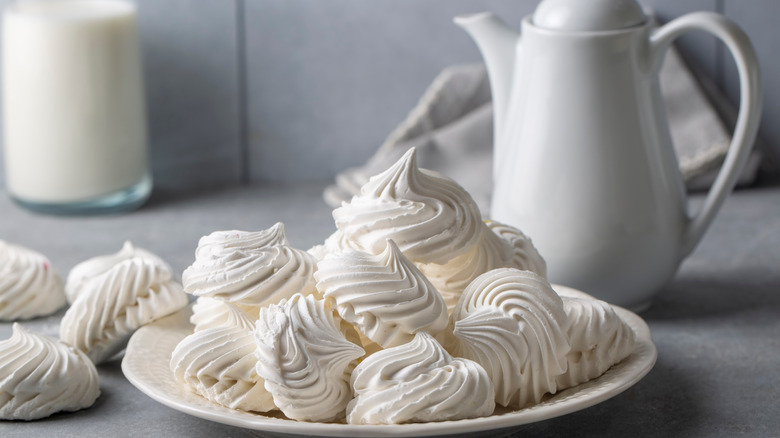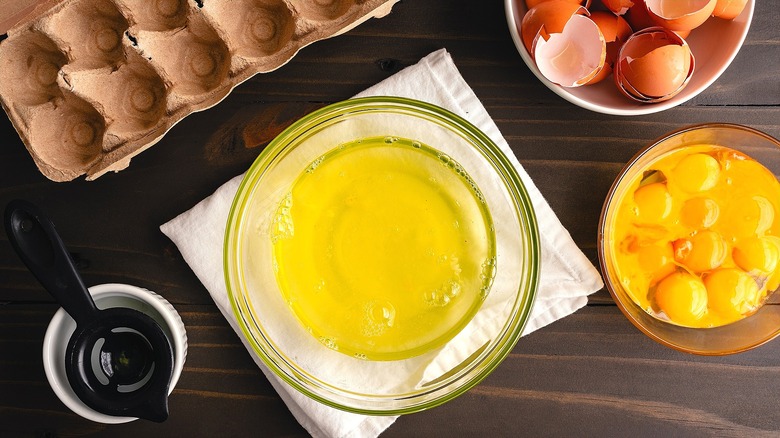The Temperature Tip For The Fluffiest Meringue
Despite the textural differences between pavlova and meringue, these airy confections require a considerable amount of egg whites, sugar, and careful technique. For more insight into the best methods, Food Republic consulted Sofia Schlieben, the corporate pastry chef at JF Restaurants, about the ideal temperature for whipping egg whites into a silky, well-defined meringue.
According to Schlieben, you can set yourself up for success by pulling your eggs from the fridge in advance: "For the best results, use room-temperature egg whites — they whip up faster and create better volume." Why is this? Well, the water and proteins within room-temperature eggs create air pockets that multiply with ease and expand in a shorter period of time — more so than with ones straight from your refrigerator. Managing temperature helps you avoid the common egg white mistake that ruins meringues.
Unfortunately, cold egg whites require extended whisking or beating to achieve the desired volume. However, when separating egg whites and yolks, cold yolks are less likely to break. Therefore, separate your eggs while they are still cold, but transfer the whites to a large bowl and let them sit at room temperature for 30 minutes to an hour before whisking.
More factors to keep in mind when making meringue
If you're thinking you might simplify the meringue-making process by using cartoned egg whites, think again. While the ingredients in store-bought egg white cartons are minimal — typically just egg whites — you're still better off cracking whole eggs and separating the yolks and whites yourself. Pre-packaged varieties undergo pasteurization, which can affect their ability to whip up and form a meringue-like consistency.
Fresh is always best when it comes to making an airy meringue. Sofia Schlieben explained, "Fresher whites are ideal for stability, but if you only have older ones, don't fret. A squeeze of lemon juice or a pinch of cream of tartar will help stabilize them." Adding an acidic ingredient helps the proteins in egg whites bind together more efficiently, creating a stable structure.
For every three (older) egg whites, include ¼ teaspoon of cream of tartar, vinegar, or lemon juice. Add the stabilizer to your egg whites before whisking. Once you've beaten the mixture for three minutes, slowly add the required sugar.
In addition to using the right type of eggs, successful meringue-making depends on mindful preparation. When whipping up your meringue, start your mixer on low speed. As you gradually incorporate the sugar, increase the speed in small increments until the meringue is fully set.


